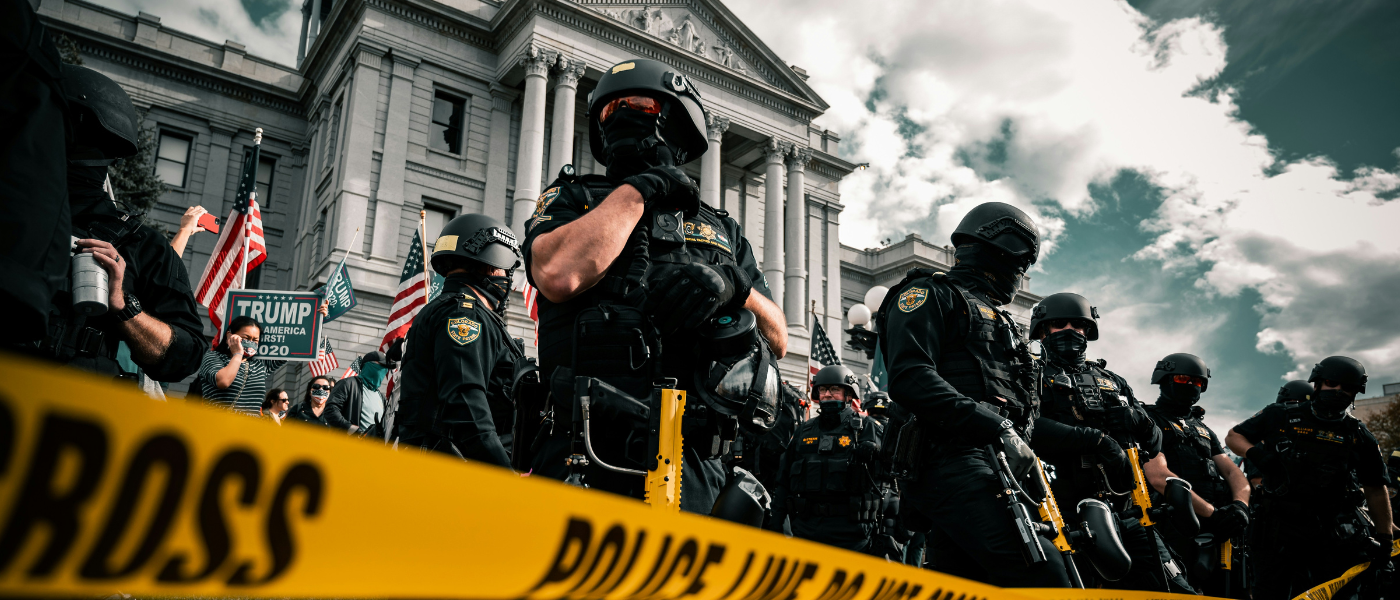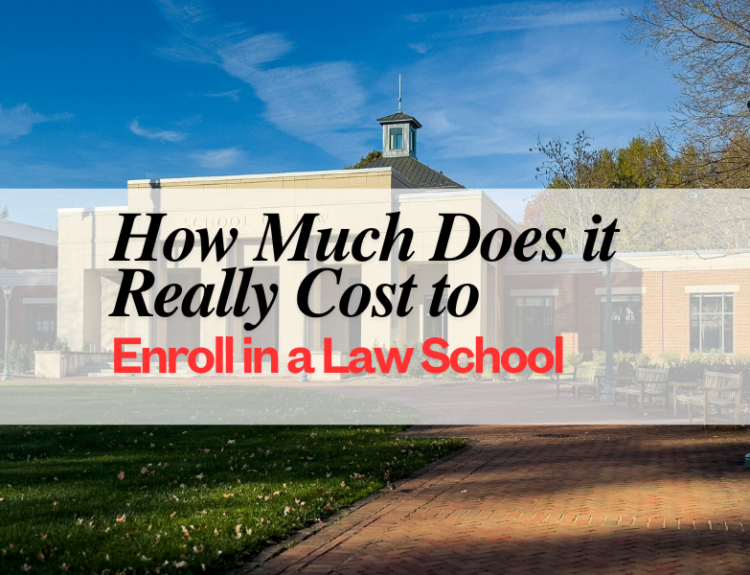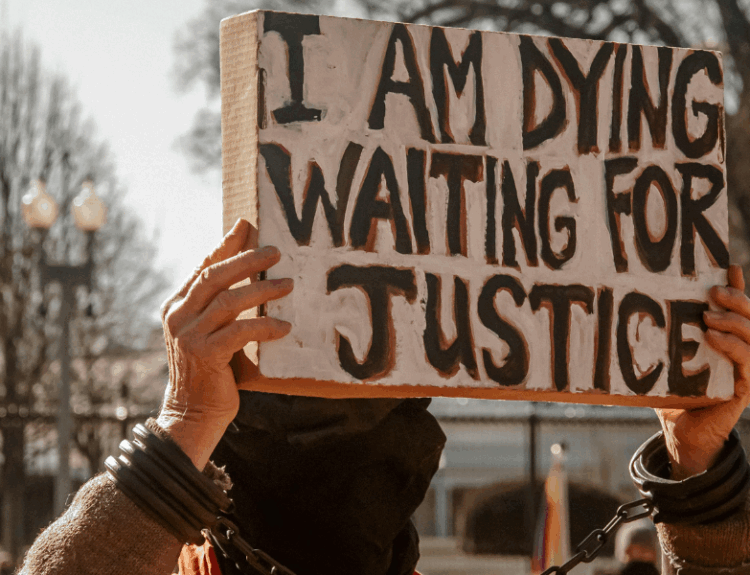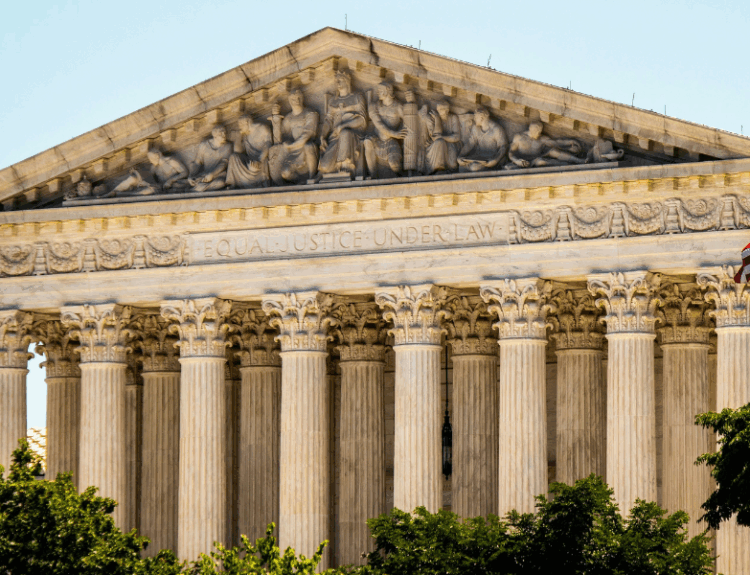Every citizen and non-citizen of the United States is entitled to some legal rights. Due process and access to justice are two of the most significant. Due process implies that the government is required to act in a fair manner before depriving a person of his/her freedom, whereas access to justice implies that people are supposed to access the legal system without any fear.
The recent ICE (Immigration and Customs Enforcement) raids in schools and courthouses have however, rendered these rights more difficult to enjoy. When individuals are afraid of being arrested or deported to learning or justice places, they tend to cease attending altogether. This fear destroys trust, divides families, and damages the justice system.
Criminal justice and law students can also learn a lot about this problem, as it demonstrates the principles of the law in the U.S. The Criminal Justice System can fail in practice, and why fairness should always be the central value of enforcement.
Understanding the Policies Behind ICE Raids
The 2011 “Sensitive Locations” Policy
In 2011, ICE launched a policy named Sensitive Locations. This policy was very clear that the immigration officials were not to make arrests in sensitive areas such as schools, hospitals, churches, or even during demonstrations. The point was that citizens were not to be afraid of using the basic services, such as education or healthcare, because they could be arrested. The ICE was only permitted to work in such places or with the due authorization of the authorities in exceptional circumstances, such as the threat of national security or emergencies.
The 2021 “Protected Areas” Expansion
In 2021, the Department of Homeland Security (DHS) added additional locations such as courts, vaccination centers, violence shelters, playgrounds, and community centers to the 2011 Policy. The 2021 guidance was aimed at ensuring that the enforcement of immigration does not prevent individuals from accessing the necessary services or justice. At the time, DHS Secretary Alejandro Mayorkas stated that the enforcement of immigration laws should never prevent individuals from attending school, reporting crimes, or accessing healthcare. This policy was meant to establish trust between the immigrant communities and the institutions of the people. It was supported by teachers, judges and police officers as it enabled people to engage in society without fear. These policies remind us that the responsibility for fair enforcement lies in the hands of immigration officials and policymakers who must balance national security with human dignity. For students studying law or criminal justice, this demonstrates how policy decisions can directly shape public trust and individual rights in society.
The 2025 DHS Policy Change
However, in January 2025, the Trump administration revoked the 2021 “Protected Areas” memo. After the revocation of the 2021 policy memo, there are no more protected areas, such as schools, hospitals, or churches, under DHS enforcement policy. The ICE agents were allowed to conduct raids and make arrests at any location where they felt it necessary. Recently, according to a new report ICE Courthouse Arrests in New York Have Increased 1,700 Percent Under Trump. This change created uncertainty. Immigrant advocates, school officials, and even judges worried that without clear restrictions, people would be afraid to show up in public spaces. More importantly, it also undermined the rule of law.
Several advocacy groups, including the National Immigrant Justice Center and Immigrant Legal Resource Center, challenged the new policy in court. A federal judge later blocked parts of the DHS memo, leaving the situation unclear.
How ICE Raids Affect Schools
Plyler v. Doe (1982) Case
The starting point for understanding rights in schools is the Supreme Court case Plyler v. Doe (1982). In that decision, the Court ruled that states cannot deny free public education to children based on their immigration status. Education, the Court said, is a basic right that helps prepare individuals to contribute to society. This means that every child in the U.S. citizen or not, has the right to attend school. Schools cannot ask about immigration status as a condition for enrolment, nor can they share personal information with immigration authorities without legal cause. However, when ICE conducts raids near schools, or when families hear rumors of immigration officers being present, many parents become too afraid to send their children to class. This is called the “chilling effect,” when people stop exercising their rights because of fear.
Fear and Absenteeism
Reports from groups like the American Immigration Council and Education Week show that immigration raids or policy changes lead to drops in attendance among Latino and immigrant students. Some schools in states like Texas, California, and New York reported spikes in absences on days when rumours spread about ICE vehicles being seen nearby. This problem is not limited to undocumented students. Many families are mixed-status meaning some members are U.S. citizens and others are not. When these families fear enforcement, even citizen children stay home, missing valuable class time.
Impact on School Participation
Fear of raids doesn’t just affect attendance. It also affects parent involvement. Parents may skip parent-teacher meetings, special-education sessions, or school events. This weakens the educational process because family engagement is essential for student success. It also interferes with procedural fairness within the school system. For example, if a parent cannot attend a disciplinary hearing or an Individualized Education Program (IEP) meeting because they are afraid, they lose their chance to participate in decisions that affect their child’s education. That’s a form of lost due process.
Schools’ Response
To address these fears, many school districts have adopted “Safe Zone” policies. Under these policies, schools promise not to allow immigration enforcement on campus without a judicial warrant (signed by a judge, not just an administrative order). Groups like the National Education Association (NEA) and ACLU have provided templates and training materials to help schools respond properly if ICE officers appear. Staff are instructed to verify warrants, protect student privacy under FERPA (Family Educational Rights and Privacy Act), and call district lawyers before giving out any information.
Some schools also send multilingual letters to families explaining that all children can attend school safely, regardless of immigration status. This kind of communication helps rebuild trust and keeps education accessible. To those students who are going to work in the field of education law or in the field of public administration, this is a lesson of how constitutional rights such as equal access to education should be actively enforced in the real world.
How ICE Raids Affect Courthouses
Why Courthouses Are Special
The justice system is centered on courtrooms. They are the places where individuals report crimes, testify, fight traffic tickets, family issues, or seek protection against abuse. To make justice effective, individuals should be comfortable going into such buildings. ICE agents instill fear in whole communities when they make civil immigration arrests in or near courthouses. Victims and witnesses can cease cooperation with the police or prosecutors. Defendants can miss hearings. And individuals who want restraining orders or child custody determinations can just surrender.
Reports of “Chilling Effects”
Since 2016, the Immigrant Defense Project (IDP) has been monitoring ICE courthouse arrests. They report that enforcement in and around courthouses instills fear and results in a decrease in court appearances. In New York, one survey revealed that two-thirds of prosecutors said victims or witnesses declined to appear in court due to fear of being detained by ICE. Judges have publicly said that such acts complicate the delivery of fair results.
Both the American Bar Association (ABA) and the New York City Bar Association have denounced the practice of courthouse arrests, claiming that they compromise due process and endanger public safety by making cooperation unwelcome.
The Legal Battle: The Protect Our Courts Act in New York
In 2020, a federal judge granted an injunction preventing ICE from conducting civil arrests at New York state courthouses. Soon, New York enacted the Protect Our Courts Act (POCA). This law criminalizes the act of arresting an individual who is going to, attending, or leaving a state courthouse without a judicial warrant. The U.S. Department of Justice subsequently appealed against certain provisions of this law on the basis that state regulations should not limit federal immigration enforcement. That case is still pending, and it is indicative of the federal-state conflict over immigration powers and access to justice.
Other states that have taken the same step to limit the use of courts to make arrests include California, Massachusetts, and Washington. The judges, lawyers, and court personnel have the duty of making sure that the courts are a place of neutrality and security to all in pursuit of justice. To future lawyers, this problem is important because it shows that even the perception of fear can interfere with the due process to remind future professionals that the justice system should be fair based on accessibility and trust.
Due Process in the Courts
The due process principle is very powerful in courts. All people are entitled to a right to notice, a right to appear, and a right to present their case. However, justice cannot operate fairly when people remain away due to fear. Courts pass default judgments, witnesses vanish, and victims are deprived of their cases without hearing. This is detrimental to defendants, victims, and the system. Criminal defendants, even those with constitutional rights under the Sixth Amendment, may be harmed when important witnesses or victims do not show up. Both prosecutors and defense lawyers claim that the very existence of ICE compromises the integrity and efficiency of the entire justice system.
Due Process of Immigration Enforcement
In the United States, due process implies that all people should be equal before the law. According to the Fifth and Fourteenth Amendments of the Constitution, no individual, including immigrants, is supposed to be deprived of life, liberty, or property without due process of law. This right is applicable to every individual within the nation and not only citizens.
Procedural and Substantive Due Process
Due process has two broad categories. Procedural due process implies that the government should take reasonable steps to deprive a person of his or her freedom or rights, such as providing a notice, a hearing, and an opportunity to defend. Substantive due process implies that the government should not act unfairly or discriminatively and should not act based on power abuse.
Both types are important in immigration enforcement. ICE (Immigration and Customs Enforcement) violates the spirit of procedural fairness when it makes raids without due warrants or hearings. When individuals are discriminated against simply due to their physical appearance, language, or place of residence, it brings up questions of fairness and discrimination, which are associated with substantive due process.
Problems Caused by Raids
- Absence of appropriate warrants: ICE usually operates under its own administrative warrants rather than judicial warrants that have been approved by a judge. This enables agents to go into homes or work places with minimal external monitoring, which may result in errors and abuse of authority.
- Racial profiling: Most immigrants are pulled over or even arrested just because they look foreign or speak a different language. Such targeting is contrary to the concept of equal treatment under the law.
- Lack of access to attorneys: Detained immigrants frequently have difficulties accessing legal assistance. The government does not offer free attorneys in immigration proceedings, and many have to represent themselves in court, usually without knowing their rights.
- Backlog in the courts: Immigration courts are very congested. The Brennan Center of Justice and Human Rights Watch reports that cases may take years, and many individuals are deported before they have a fair opportunity to provide evidence or hire an attorney.
Obstacles in Justice and ICE Enforcement Strategy
The new ICE strategies of illegal arrests have posed numerous obstacles to immigrants who wish to continue their legal and lawful processes of living in the country by obtaining their legitimate paperwork. The immigrants fear going to courts to hear their cases as they are afraid of being arrested or deported.
Fear and Loss of Trust
In the cases where ICE raids are carried out around schools, courts, or hospitals, a significant number of immigrants no longer engage with the local authorities. Domestic violence victims, such as those, might refuse to report abuse or attend hearings. This chilling effect does not only hurt the immigrants but also the safety of the people since the crimes remain unreported and the people remain silent.
Issues of Legal Representation
With a raid, many of the immigrants are detained and taken miles away, usually in different states, far away, and without their family or home. This renders the contact of their lawyers extremely challenging and leads to a delay in the justice system. A report by Human Rights Watch indicated that when an individual is transferred to remote detention facilities, access to attorneys is blocked and this means that the detainees usually miss crucial legal deadlines or court appearances.
International Human Rights Standards
According to the United Nations human rights regulations, all people, regardless of their nationality, are entitled to fair trial and equal treatment under the law. These international standards are also breached when the immigrants are denied the right to access justice due to fear, the absence of lawyers, or unfair practices.
State and Local Responses
In many parts of the United States, state and local governments have taken action to protect immigrants from the negative effects of ICE enforcement. These efforts aim to make sure that schools, courthouses, and other public places remain safe for everyone, no matter their immigration status.
Protective Measures
A significant example is the California sanctuary state law, the California Values Act (SB 54). It was enacted in 2017, restricting the collaboration of local police and state agencies with ICE. The law does not allow officers to exchange personal information or assist in immigration arrests unless a serious crime has been committed. It aims at ensuring that schools, hospitals and workplaces are free of the fear of immigration raids. In New York, the Immigrant Defense Project limits the actions of ICE in and around courthouses. Such policies ensure that individuals are able to attend hearings or report crimes without fear of being arrested. Likewise, Massachusetts and Oregon have released court orders that restrict or prohibit ICE arrests within court facilities. These measures are used to maintain the confidence of the population in the justice system and make justice accessible to everyone.
Ethical and Social Dimensions
Schools and courts are supposed to be secure, neutral environments where individuals can learn, seek assistance or receive justice without fear. As ICE raids take place in such spaces, they put that moral responsibility to the test. The safety and trust of all people is an ethical responsibility of public institutions, not only the enforcement of laws.
The social impacts are grave: families are torn apart, children live in fear and communities lose faith in the justice system. Individuals are less inclined to report crimes or participate in civic life.
The core of this problem is a moral discussion: Is it more important to enforce the law or humanistic principles such as dignity, fairness, and compassion? It takes real justice to strike a balance between the two.
Recommendations and Future Outlook
In order to safeguard due process and provide equal access to justice, there are a number of key policy measures that can be undertaken both at the federal and local levels.
First, the U.S. government must make the policy of sensitive locations federal. This would criminalize ICE raiding schools, courthouses, hospitals, or places of worship without a serious and urgent purpose. This policy is currently just agency guidance, and thus can easily be altered with every administration. Turning it into the law would provide long-term protection and make people feel safe using public services.
Second, ICE enforcement activities should be more closely monitored and judged. Raids and arrests must be warranted by a judge and not by an internal ICE order. This would minimize false arrests and safeguard civil liberties.
Third, the provision of legal assistance to immigrants should be increased. The fact that many individuals who are to be deported cannot afford a lawyer makes it almost impossible to receive a fair hearing.
The implementation of these measures depends on responsible lawmakers, immigration officials, and civil society organizations committed to fairness. For future professionals studying law and justice, this is a powerful reminder that their roles carry the potential to rebuild trust, uphold rights, and make justice accessible to all.
Conclusion
The issue of ICE raids in schools and courthouses casts a dark cloud on the concept of fairness and justice in America. Although immigration laws are supposed to safeguard national security, their implementation is usually fear-inducing and confusing. This is detrimental to both the individual and the community, as many immigrants do not attend schools, courts, or even hospitals due to the fear of being detained.
All individuals, regardless of their place of birth, shall be treated equally before the law. Justice cannot work when individuals are too scared to seek assistance or appear in court. Schools are not to be places of teaching, and courts are not to be places of teaching.
Going forward, the U.S. needs to strike a more appropriate balance between law enforcement and human rights.

The Impact of Technology on Criminal Investigations







